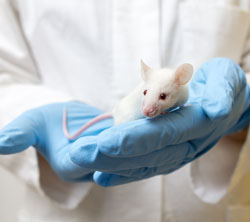Statins Reduce Drug-Craving in Mice
 Statins are drugs that are typically used to lower cholesterol. Recent research on the drugs has focused on their effects on the brain.
Statins are drugs that are typically used to lower cholesterol. Recent research on the drugs has focused on their effects on the brain.
In 2015 Claudia Chauvet and colleagues reported in the journal Neuropsychopharmacology that the brain-penetrating statins simvastatin and Atorvastatin reduced cocaine seeking behaviors in mice that were taught to self-administer cocaine and then were denied access to it for 21 days compared to pravastatin, a statin that does not penetrate the brain as thoroughly. The researchers found that the brain-penetrating statins also reduced nicotine seeking, but not food reward seeking. The statins also worked in mice that had stopped seeking cocaine but relapsed due to stress, allowing them to abstain from cocaine seeking again.
Statins are considered a very safe treatment in humans. The ability of statins to prevent relapse to addictions in mice may mean that one day they could be used to treat addictions in people as well. A review article by Cassie Redlich and colleagues in the journal BMC Psychiatry in 2014 indicated that statins may reduce recurrence of depression in people. The researchers found that simvastatin had a protective effect while Atorvastatin was associated with increased risk of depression, so the choice of statins may be important for both depression and addiction.

